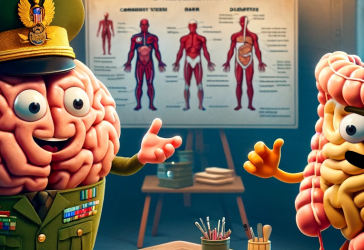Autism, often referred to as Autism Spectrum Disorder (ASD), is a complex and multifaceted condition that affects individuals in various ways. This blog post aims to shed light on what autism is, how it affects social communication, interaction, imagination, and sensory processing, and how Cognitive Behavioural Therapy (CBT) and counselling can provide support. We will also explore the nuances of autism diagnosis, examine the differences in presentation between genders, and address the challenges of misdiagnosis. This inclusive perspective ensures we view each person as unique, focusing on the individual rather than their autism. We hope to help shed a little light on understanding autism and hope you find this overview helpful.
What is Autism?
Autism is a developmental condition that involves differences in social communication, interaction, and behaviour. It is crucial to understand that autism is not a linear condition but rather a sphere encompassing various aspects that affect each individual differently. The common areas impacted by autism include:
- Social Communication: Individuals with autism may find it challenging to understand and use verbal and non-verbal communication. This can include difficulties in interpreting facial expressions, gestures, and tone of voice.
- Social Interaction: Forming and maintaining relationships can be difficult for those on the autism spectrum. They may struggle with understanding social norms, making friends, or participating in group activities.
- Social Imagination: This refers to the ability to imagine and predict others’ behaviour, understand abstract concepts, and think flexibly. Individuals with autism might find it hard to grasp hypothetical situations or engage in imaginative play.
- Sensory Processing: People with autism often experience heightened or reduced sensitivity to sensory stimuli, such as light, sound, touch, taste, and smell. This can lead to sensory overload or seeking sensory input.
Causes of Autism:
The exact cause of autism is still unknown, though research suggests it is likely due to a combination of genetic and environmental factors. Genetic predisposition significantly influences autism, with numerous genes associated with its development. Environmental factors, such as prenatal and perinatal influences, also contribute to the condition, though no single cause has been identified.
Autism Diagnosis:
Diagnosing autism involves a comprehensive evaluation by healthcare professionals, including developmental paediatricians, neurologists, psychologists, and speech therapists. The diagnosis is based on observing behaviour and development, often supplemented by standardised tests and questionnaires. Early diagnosis is crucial for accessing appropriate interventions and support.
The Role of CBT and Counselling:
CBT and counselling can be highly effective in supporting individuals with autism. These therapies help develop coping strategies, improve social skills, and manage anxiety and other co-occurring conditions. CBT and counselling empower individuals to lead fulfilling lives by focusing on individual strengths and addressing specific challenges.
Autism in Different Genders:
Autism presents differently in males and females, often leading to underdiagnosis in females. While boys are more frequently diagnosed, girls may exhibit subtler signs or develop coping mechanisms that mask their symptoms. Understanding these gender differences is essential for accurate diagnosis and tailored interventions.
Challenges of Misdiagnosis:
Many individuals with autism are either misdiagnosed with other conditions, such as ADHD or anxiety disorders or not diagnosed at all. This can result in inadequate support and misunderstandings about their needs. Accurate diagnosis is vital for providing appropriate care and improving quality of life.
Conclusion:
Autism is a diverse and complex condition that requires a nuanced and individualised approach. By recognising the unique experiences and strengths of each person with autism, we can provide better support and foster an inclusive environment. For more information on autism and available resources, please visit the Empathy Rooms Website or consult Autism Scotland
At Empathy Rooms, we are committed to bridging the gap between autistic individuals and therapeutic perspectives, ensuring everyone has access to the understanding and support they deserve.






